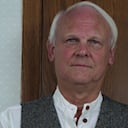What was philosopher John Locke's term for the blank slate of the human mind before it is filled with experience?
John Locke in his Essay Concerning Human Understanding restated the importance of the experience of the senses over speculation and sets out the case that the human mind at birth is a complete, but receptive, blank slate (scraped tablet or tabula rasa) upon which experience imprints knowledge. Locke argued that people acquire knowledge from the information about the objects in the world that our senses bring. People begin with simple ideas and then combine them into more complex ones.
Let us then suppose the mind to be, as we say, white paper void of all characters, without any ideas. How can it to be furnished? How does it come by its vast store of knowledge, which a busy man with boundless energy will painted with an almost endless variety of ideas? The mind will ultimately contain all the reason and knowledge that a person will possess.
Overall an answer is found in one word to the questions asked above. 'Experience' is the word.
More Info:
www.age-of-the-sage.org





